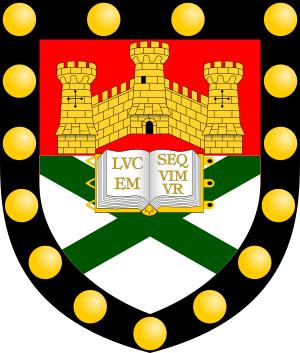 151-200
151-200 


As a member of the prestigious Russell Group of leading research universities, the University of Exeter is proud to bring together top students from around the world to learn from our renowned academics and study at our beautiful, green campuses in the safe and scenic South West region of the UK. Our students are central to our exciting, global community, which includes over 7,000 current international students as well as world-leading lecturers, prestigious partner organisations and a strong network of supportive alumni. At the University of Exeter, we believe our students are the leaders of a better future and we are dedicated to supporting them on their way: we are one of the few Russell Group universities to have received a triple gold award in the UK’s Teaching Excellence Framework (2023) and consistently rank highly for student satisfaction in the National Student Survey. We know our high student satisfaction ratings are partly due to our outstanding facilities - from study spaces and laboratories to student accommodation and sports facilities, we’ve invested in our campuses to make them as cutting-edge as they are beautiful, perfectly suited to both studying and research. Our research is also very important to us, and we’re tackling some of the fundamental issues facing humankind to create a greener, healthier and fairer future. The most recent Research Excellence Framework (2021) review rated more than 99 percent of our research as being of international quality1, showing that we are doing more research, of better quality, with a bigger impact on the world than ever before. 1 Research rated 4* + 3* + 2* in REF 2021
 151-200
151-200 
| Subject | Rank |
|---|---|
Ecology | 2 |
Earth Sciences | 18 |
Geography | 18 |
Atmospheric Science | 19 |
Environmental Science & Engineering | 28 |
Public Administration | 40 |
Water Resources | 51-75 |
Oceanography | 76-100 |


| Undergraduate Programs |
|---|
Accounting and Finance |
Anthropology |
Arab and Islamic Studies |
Art History & Visual Culture |
Biosciences |
Business and Management |
Classics and Ancient History |
Computer Science |
Criminology |
Data Science |
Drama |
Earth Sciences |
Ecology and Conservation |
Economics |
Engineering |
English |
Environmental Science |
Film Studies |
Flexible Combined Honours |
Geography |
Geology |
History |
Law |
Liberal Arts |
Mathematics |
Media and Communications |
Medical Imaging |
Medical Sciences |
Medicine |
Mining Engineering |
Modern Languages and Cultures |
Natural Sciences |
Neuroscience |
Nursing |
Philosophy |
Physics and Astronomy |
Politics and International Relations |
Psychology |
Renewable Energy |
Sociology |
Sport and Health Sciences |
Theology and Religion |
| Graduate Programs |
|---|
Accounting |
Anthropology |
Arab and Islamic Studies |
Archaeology |
Biosciences |
Business and Management |
Classics and Ancient History |
Climate Change |
Computer Science |
Creative Industries |
Data Science and Analytics |
Drama |
Ecology and Conservation |
Economics |
Education and Teacher Training |
Engineering |
English |
Film |
Finance |
Geography |
Geology |
Healthcare and Medicine |
History |
Law |
Mathematics |
Media and Communications |
Mining Engineering |
Modern Languages and Cultures |
Philosophy |
Physics and Astronomy |
Politics and International Relations |
Psychology |
Renewable Energy Engineering |
Security Studies |
Sociology |
Sport and Health Sciences |
Theology and Religion |